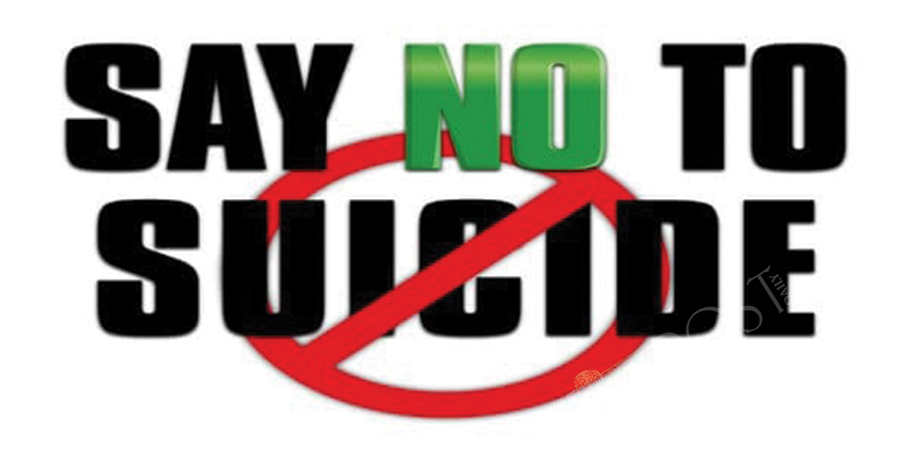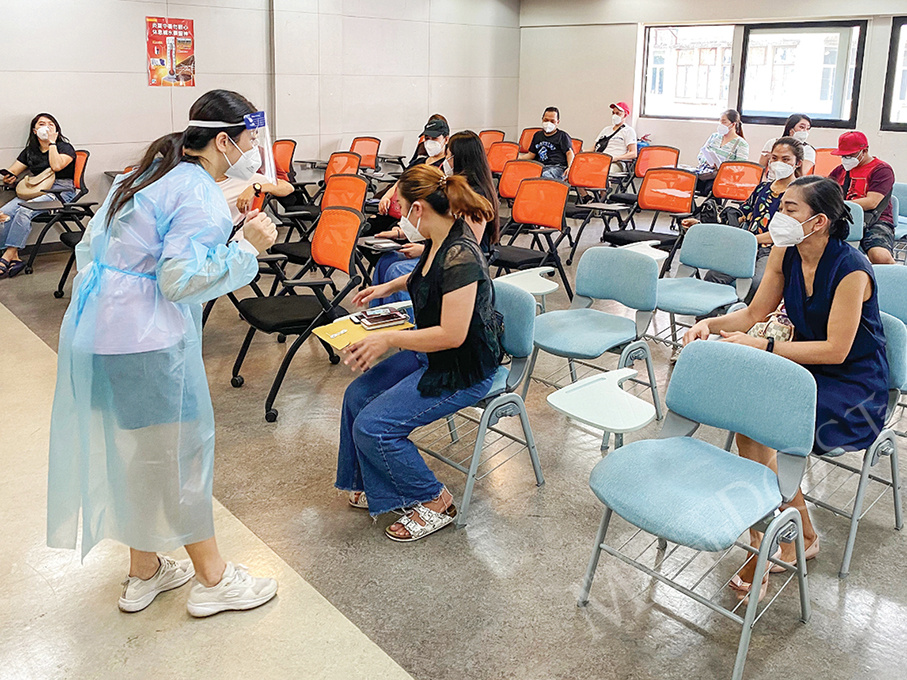The Macau government yesterday urged all those who work or study in Macau but live in the mainland to strengthen their COVID-19 protection measures, such as wearing a KN95 facemask when out and about.
A statement by the Novel Coronavirus Response and Coordination Centre yesterday also advised them to self-test for COVID-19 with a rapid antigen test (RAT) kit every day before leaving home for work or study.
The statement said that border crossers who work or study in Macau but live in the mainland should comply with a string of strengthened protection measures in the wake of “the latest COVID-19 developments” in the cities of Zhuhai and Zhongshan.
Tens of thousands of non-resident workers (NRWs) and local residents, including cross-border students and teachers as well as others working in Macau, have their homes in Zhuhai, because of which they regularly commute between the two cities. A small percentage of Macau-Zhuhai daily border crossers even live in Tanzhou town of Zhongshan city.
While Tanzhou town is in Zhongshan city, it neighbours Zhuhai and only lies some 10 kilometres northwest of Macau. Tanzhou is much closer to central Zhuhai than central Zhongshan city, i.e., Shiqi subdistrict.
According to the statement, regular border crossers should wear a KN95 facemask or one with the same standards when catching a public bus, or visiting venues or attending activities that involve crowd gatherings.
The statement also said that those wearing a facemask should have it fully cover their mouth and nose.
In addition, regular border crossers should always only travel between their homes, workplaces, and COVID-19 nucleic acid test (NAT) sampling stations, without visiting other venues unnecessarily, the statement said, adding that they should also avoid visiting any venues involving crowd gatherings.
The statement also said that smokers should always choose “quiet” locations to smoke when out and about, adding that they should not smoke while walking.
RAT kits
The statement also urged those who work or study in Macau but live in the mainland to self-test for COVID-19 with an RAT kit and upload their negative RAT result onto the Macau Health Bureau’s (SSM) platform every day before leaving home.
A statement by the centre on Wednesday said that while the Education and Youth Development Bureau (DSEDJ) will provide cross-border schoolchildren with free RAT kits, higher education students will have to buy their own RAT kit.
Wednesday’s statement also said that employers are required to provide their cross-border staff members with free RAT kits for COVID-19 self-tests.
No positive results from 5-day NAT campaign triggered by tourist’s case
Meanwhile, the Novel Coronavirus Response and Coordination Centre announced yesterday morning that no COVID-19 positive results had been reported from the government’s five-day NAT campaign for three high-risk key areas that was carried out between Saturday afternoon last week and Wednesday.
The five-day NAT campaign was triggered by a mainland tourist’s COVID-19 case that was detected in Macau in the early hours of Saturday last week. All those living or working in the three key areas were required to undergo four nucleic acid tests over five days between Saturday last week and Wednesday.
The first key area of the then five-day NAT campaign covered Macau Fisherman’s Wharf and the Sands Macao casino-hotel in Nape. The second key area covered an area in the vicinity of the Ruins of St Paul’s and Mount Fortress, while the third key area covered an area around São Lourenço Church, A-Ma Temple, and Ha Van (Praia do Manduco) district.
Meanwhile, the centre also noted yesterday that all Red Code Zones in Macau have been lifted, i.e., no Red Code Zones are currently in force in the city.

This undated file photo shows travellers walking in the Barrier Gate border checkpoint. – Photo: GCS









